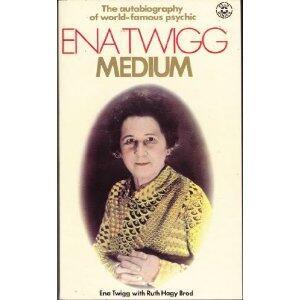Ruth Hagy Brod
Ruth Hagy Brod had an extensive and varied career as a journalist, documentary filmmaker, literary agent, publicity director, and more. In 1938 Brod began working for various Philadelphia, Chicago, and New York papers. During World War II, she did publicity work for the Treasury Department’s War Chest and Savings Bond campaigns. After the war, she served as women’s editor of the Philadelphia Bulletin, creating the College News Conference. She created a Peace Corps documentary and served as a Far East news correspondent before returning to America to launch Ruth Hagy Productions and News Service. In later life, she coauthored a wide variety of books and served as a literary agent.
Early Life and Family
Ruth Hagy Brod was a versatile and peripatetic career woman who worked for nearly fifty years as a journalist, publicist, literary agent, television host, and government antipoverty official.
Known professionally as Ruth Geri Hagy, she was born on May 31, 1911, in East Harlem, New York City, to Abraham and Jeanette (Rapaport) Fleischman. She grew up in Chicago, where she developed as a musical prodigy, giving piano recitals at age six. She studied music at Crane Junior College in Chicago and received a bachelor’s degree in music at the Chicago College of Music in 1929.
Journalism and World War II
Brod then turned from music to journalism. At age twenty-five, she moved to Hollywood, where she was an editor for the Macfadden movie and radio magazines from 1936 to 1938.
From Hollywood, Brod moved to Philadelphia, where she wrote features for the Philadelphia Ledger from 1938 to 1941. Over the years, she worked for the New York Graphic, the Chicago Daily American, the Chicago Daily Times, the Chicago Daily News, and the Philadelphia Bulletin. She also worked as a radio reporter and documentary filmmaker.
During World War II, she served as publicity director for the United War Chest campaigns and was a member of the women’s advisory board executive committee for the U.S. Savings Bond division of the U.S. Treasury from 1942 to 1946.
After the war, Brod became women’s editor of the Philadelphia Bulletin in 1946. While there, she initiated the Bulletin Forum, which she developed in 1952 into the “College News Conference.” The Sunday programs featured a panel of college students who questioned prominent figures in politics, labor, and government.
Politics and Publishing
In 1961, Brod traveled to Latin America and served as an educational television adviser to the Colombian government while producing a Peace Corps documentary film. She also produced a television series on Asian women and was a correspondent in Southeast Asia for the now-defunct North American Newspaper Alliance. She was a Far East correspondent for NBC Radio Press International and others.
In 1962, Brod returned to New York. There, she formed Ruth Hagy Productions and News Service. In the mid-1960s, she was asked to develop JOIN (Job Orientation in Neighborhoods) and served as special assistant to Mayor Robert F. Wagner. In the late 1960s, she was the founder-director of the Mayor’s Coordinating Council under Mayor John V. Lindsay.
As a book author, Brod’s choice of topics was offbeat. She coauthored The Edgar Cayce Handbook of Health Through Drugless Therapy and Ena Twigg, Medium.
As a literary agent, she took on two famous clients each of whom came to a violent end: Allard K. Lowenstein, a former United States congressman and civil rights activist who was slain in March 1980, and James Hoffa, the Teamsters union leader, whose memoirs she was negotiating to publish at the time of his disappearance (1975).
Ruth Hagy Brod was widowed twice. Her first husband was Anatol Frikin, whom she married in 1929, and with whom she had a daughter, Sybil Joan (Lefferts). She married Lewis Hagy in 1932. She married Ed Albert Thomas Brod in 1954. She died of lung cancer on May 9, 1980, at age sixty-eight, in Freeport, Bahamas.
Ruth Brod did not focus on specifically Jewish issues in her career, but as a woman and a Jew, she paved the way for a greater role for women in journalism and public service.
Selected Works
The Edgar Cayce Handbook of Health Through Drugless Therapy, with Harold J. Reilly (1975)
Ena Twigg, Medium, with Ena Twigg (1972)
Contemporary Authors (1981).
Obituary. NYTimes, May 11, 1980.
WWWIA 7.
Who’s Who of American Women (1965, 1967).



